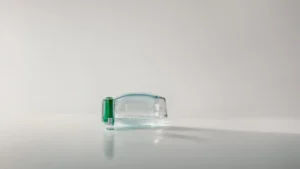Have you ever heard the old expression that “when you love something, you need to let it go?” Well, this can often be so much easier said than done. Especially when letting go of something can end up costing you a lot more money. It can be hard to recognize when it’s time to move on from that thing that helped you for so long. No, we’re not talking about lost loves or relationships—we’re talking about your current furnace.
As a homeowner, you need to be prepared to schedule maintenance and to have your home systems break down or require repairs from time to time. It’s an unavoidable part of running an efficient, successful home. However, there are instances when you may realize that your repairs are actually costing you more than just getting a new system. Whether it’s raising your energy bill, harming your health, or becoming a nuisance, an old furnace can cause a number of problems. When the time comes, you may want to consider purchasing a new heating system. Here are just a few things to look at as you decide if a repair or a replacement is the better path for you.
How old is your furnace?
Your heating system wasn’t built nor designed to last forever. Age is an important factor as you decide between repairing or replacing your furnace. An HVAC system is designed to operate for 15 to 20 years. If you have an older furnace that continues acting up, it may not be worth repairing. A 15-year-old unit isn’t going to last much longer anyway, so it makes more sense to replace it. On the other hand, an HVAC unit that you’ve only had for five or ten years still has some life in it. Be reasonable and systematic about how much time you have left with your current system.
The system is leaking toxins.
An old system has been good for you for years, but when general wear and tear takes its toll, it could actually become dangerous for your family. Your air conditioner and heating system are responsible for pumping air throughout your home. If an older furnace has cracks or leaks, it can start spreading toxins like carbon monoxide throughout your home. This vapor is odorless and can cause nausea, disorientation, and fatigue. Make sure you have a carbon monoxide detector to check for these issues. In this case, you’ll want to replace your system right away.
Constant repair needs aren’t a good sign.
It’s normal to get regular maintenance repairs on your furnace, but as a general rule of thumb, you don’t want to be calling the technicians every other month. When you realize that you’re constantly having to repair a breakdown, or there are new strange sounds every couple of weeks, that may be a sign your furnace is on its last leg. Consider switching to a new furnace to save time and hassle.
Check the costs.
Constantly calling your HVAC technician can include high costs of repair. An older unit that’s working twice as hard to pump warm air can also drive up your energy bills. You may be spending a lot of money to repair your heater and keep the old one around. At that point, you’ll actually be saving when you invest in a new system.
Consider when you want to sell.
When you put your home on the market, you want it to be nice and pristine to get a better price. Consider when you want to sell and the age of your furnace. If you can get away with repairs, go for it, but sometimes an older furnace will be a turn-off for potential buyers. Investing in a new one may be able to pay for itself with the increase in value.








